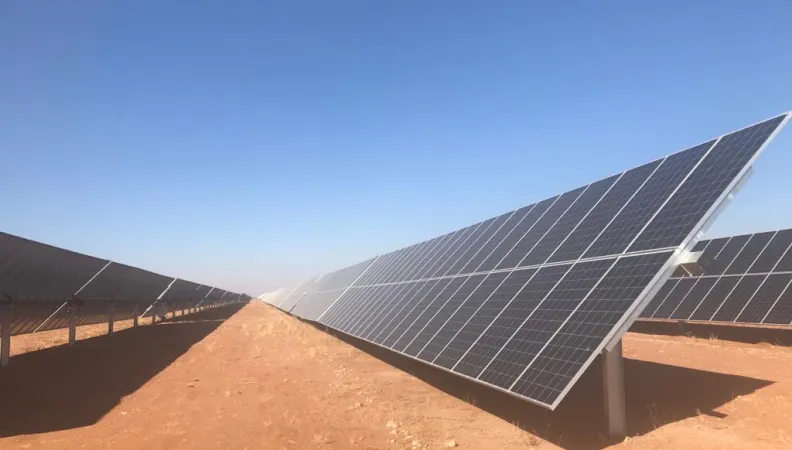Share the page
A guarantee to finance the construction of the first large-scale solar power plant in Namibia
Project


-
Signature date
-
-
Location
-
Namibia
-
Financing tool
-
Financing amount (Euro)
-
37000000
-
Financing details
-
Guarantee covering a ZAR 620m loan allocated by Standard Bank Namibia
-
Customer
-
Alten Solar Power (Hardap) (Proprietary) Limited
-
Type of customer
-
Company
-
Country of headquarters
-
Namibia
-
Project number
-
PNA1008
-
Environmental and social ranking
-
B+
This information is given at the time of signature, without prejudice to any developments in the operation/project.
PROPARCO has allocated a EUR 37m guarantee to South Africa’s Standard Bank to cover the loan earmarked to finance the construction of a photovoltaic farm with an installed capacity of 37 MW. This 1st large-scale power plant will allow Namibia to reduce its energy dependence by producing clean and affordable energy.
Client presentation
Alten Renewable Energy is an independent energy developer and producer set up in 2006, whose activity covers the entire value chain in the field of photovoltaics (development of greenfield projects, investment, structured finance, construction and O&M).
The Group went international in 2013 and is currently developing some 580 MW of projects, including 250 MW in Africa (Kenya, Nigeria and Namibia) and 330 MW in North America (Mexico).
Project description
Hardap is a 37 MW photovoltaic power plant located near the city of Mariental in the Hardap region. It was created following a bid invitation won by the Spanish developer Alten.
It is the first large-scale solar power plant in Namibia, as the current solar power plants have a unit capacity of 5 MW. It aims to reduce the country’s deficit in its power generation capacity.
Project impact
While Namibia’s production is currently mainly based on the Ruacana hydropower plant, this photovoltaic solar power plant, a source of low-carbon electricity, will allow the country to structure a solar industry and improve its energy independence (contribution to SDG 13).
The project, which should produce 8.5% of national electricity production, will thereby bring about a reduction in electricity imports (68% in 2016), while improving the reliability of the power system. It will be possible to redirect the substantial savings made by reducing imports to new infrastructure to further improve Namibia’s energy security and independence.
In addition, this project should reduce annual CO2 emissions by 9,400 tons (235,000 t CO2 over the 25 years of the life of the project). It will also theoretically provide over 76,000 people with access to a low-carbon source of electricity.
The project will also have major social and economic impacts by helping create or maintain 1,260 jobs (indirect, induced or secondary) during the life of the project.
Finally, the project company will pay part of the revenues into a fund destined to set up social programs in the region.


